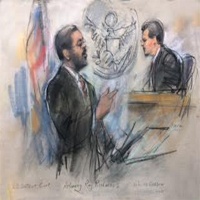 Eastpointe Criminal Lawyers, Michigan
Eastpointe Criminal Lawyers, Michigan
Sponsored Law Firm
-
 x
x

Click For More Info:
-
Richards & Associates, PLLC
200 East Big Beaver Road Troy, MI 48083» view mapCriminal Defense Accomplished Criminal Defense Attorney
If you face criminal charges, you deserve an experienced defense lawyer who has a reputation for winning the tough cases.
800-844-5250
Sponsored Lawyers
1-10 of 18 matches
Criminal, Divorce & Family Law, Bankruptcy & Debt, Estate, Lawsuit & Dispute
The attorneys of Maynard Law Associates, PLLC are skilled at walking our clients through each step of the complicated legal process. If you are confronted with criminal charges, or even being investigated, the time to have an attorney is NOW. We have 14 years experience handling criminal matters, from misdemeanors to federal felony charges, and everything inbetween. When you are faced with criminal charges, you need agressive representation to protect your rights. We will fight for you to protect your rights and your record. Call us today! If you are contemplating divorce proceedings, already facing a divorce action, fighting for custody or battling child and/or spousal support issues, you need a skilled legal team to fight for you and advise you. Our team has the right experience and we stand ready to help you and your family. Call us today!
(more)Accident & Injury, Divorce & Family Law, Criminal
We have over 20 years of combined legal experience, handling criminal law and defense cases, family law matters, including divorce and child custody cases, professional licensing defense and, more recently, Michigan Medical Marijuana Defense and Licensure. We can pretty much handle any criminal case, family law dispute or professional licensing complaint that they can throw at us. We do some other boutique things too, but we prefer a sit down to discuss unique cases that pique our interest.
(more)


 Ray Richards Troy, MI
Ray Richards Troy, MI AboutRichards & Associates, PLLC
AboutRichards & Associates, PLLC Practice AreasSpecializations
Practice AreasSpecializations


